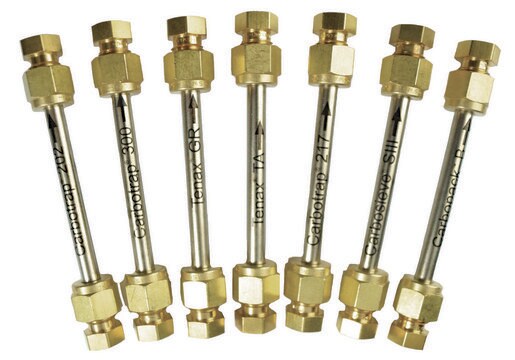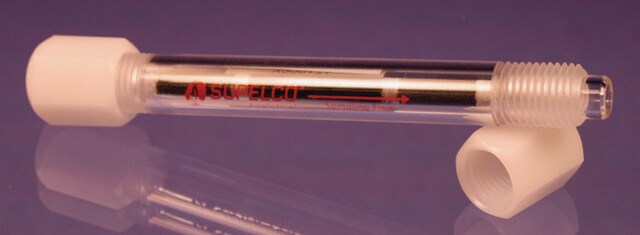30139-U
Carbotrap® 300
stainless steel TD tube, unconditioned, pkg of 10 ea
About This Item
Productos recomendados
material
stainless steel TD tube
Quality Level
agency
EPA TO-1,TO-2,TO-3,TO-17
product line
Carbotrap®
feature
unconditioned
packaging
pkg of 10 ea
greener alternative product characteristics
Waste Prevention
Safer Solvents and Auxiliaries
Learn more about the Principles of Green Chemistry.
technique(s)
active air sampling: suitable
O.D. × L
1/4 × 3 1/2
matrix
Carbotrap® 300 graphitized carbon black (GCB)
application(s)
air monitoring
environmental
industrial hygiene
compatibility
PerkinElmer, Markes, DANI, OI Analytical, and Shimadzu Instruments
greener alternative category
¿Está buscando productos similares? Visita Guía de comparación de productos
Categorías relacionadas
General description
Legal Information
Storage Class
11 - Combustible Solids
wgk_germany
nwg
flash_point_f
Not applicable
flash_point_c
Not applicable
Elija entre una de las versiones más recientes:
Certificados de análisis (COA)
Lo sentimos, en este momento no disponemos de COAs para este producto en línea.
Si necesita más asistencia, póngase en contacto con Atención al cliente
¿Ya tiene este producto?
Encuentre la documentación para los productos que ha comprado recientemente en la Biblioteca de documentos.
Nuestro equipo de científicos tiene experiencia en todas las áreas de investigación: Ciencias de la vida, Ciencia de los materiales, Síntesis química, Cromatografía, Analítica y muchas otras.
Póngase en contacto con el Servicio técnico





